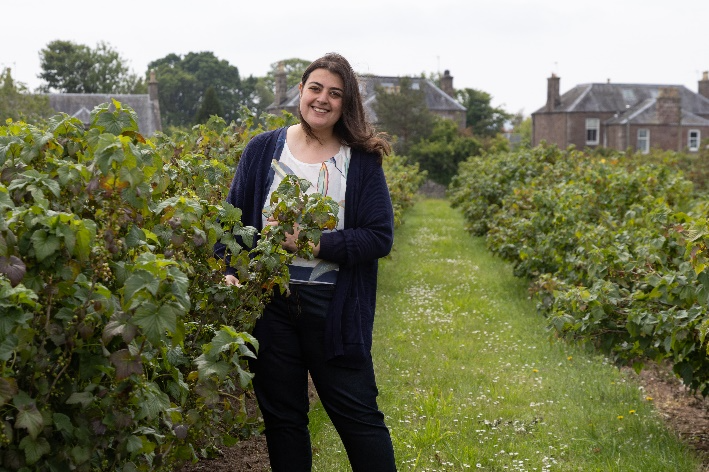Blackcurrants could potentially become a staple of fresh fruit aisles in UK supermarkets in the near future, as researchers in Scotland have received funding to develop the fruit into a more suitable product for retail.
Despite containing high levels of vitamin C, other essential vitamins and antioxidants, fresh blackcurrants are generally grown to be processed into drinks, jams, and preserves rather than for direct consumption.
A project being carried out by James Hutton Institute Scientific Service, has recently been backed by Winterwood Farms Ltd. to allow Hutton researchers to continue their development of blackcurrants for a further five years.
The goal of the project is to reshape the genetics of blackcurrants to make them sweeter in taste, last longer, and also easier to harvest and more attractive for fresh fruit retail.
Blackcurrants
Hutton have outlined the key traits of blackcurrants that the scientists are modifying to make them more retail-friendly, such as fruit size, sugar content, shelf life, and attractive long fruit clusters, which are also known as strigs.
Additionally, the project is focused on breeding for traits such as lower winter chilling requirements and improved resistance to pests and diseases, which the scientists hope will make the blackcurrants more adaptable to climate change and reduce the reliance on chemical inputs.
Dr. Amanda Moura, who is a specialist blackcurrant breeder at the Hutton, said: “We want shoppers to find blackcurrants on supermarket shelves as a fresh and healthy choice, while ensuring the crop remains resilient for future farming.
“This is ambitious work, as we are almost completely redefining the genetics of blackcurrants; it demands dedication, time, and perhaps a touch of luck.
“This project began nearly 20 years ago, and we all feel we are finally getting closer now,” Dr. Moura added.
The managing director at Winterwood Farms Ltd, Steve Taylor commented: “Although many blackcurrant varieties exist around the world, none of them are sweet enough to be consumed in the same way as, say, raspberries and blueberries.
“Purely from a health perspective, blackcurrants have the potential to be a superfood, particularly if they were sweet enough to snack on, rather than restricted to cooking with, or mixing with other fruits.”
Hutton acknowledged that “no blackcurrant has yet been developed with this level of professionalism or commercial value”.
However, the research institute hopes that upcoming trial plantings on farms belonging to Winterwood will lead to the growth of new blackcurrants selections that “align with commercial priorities and meet consumer expectations”.


